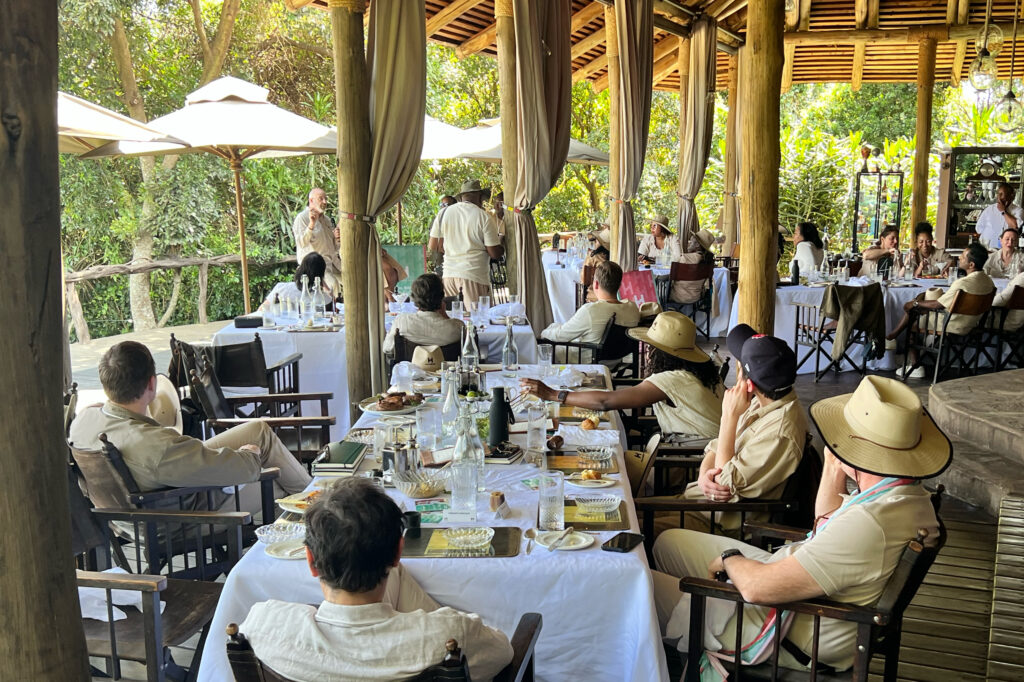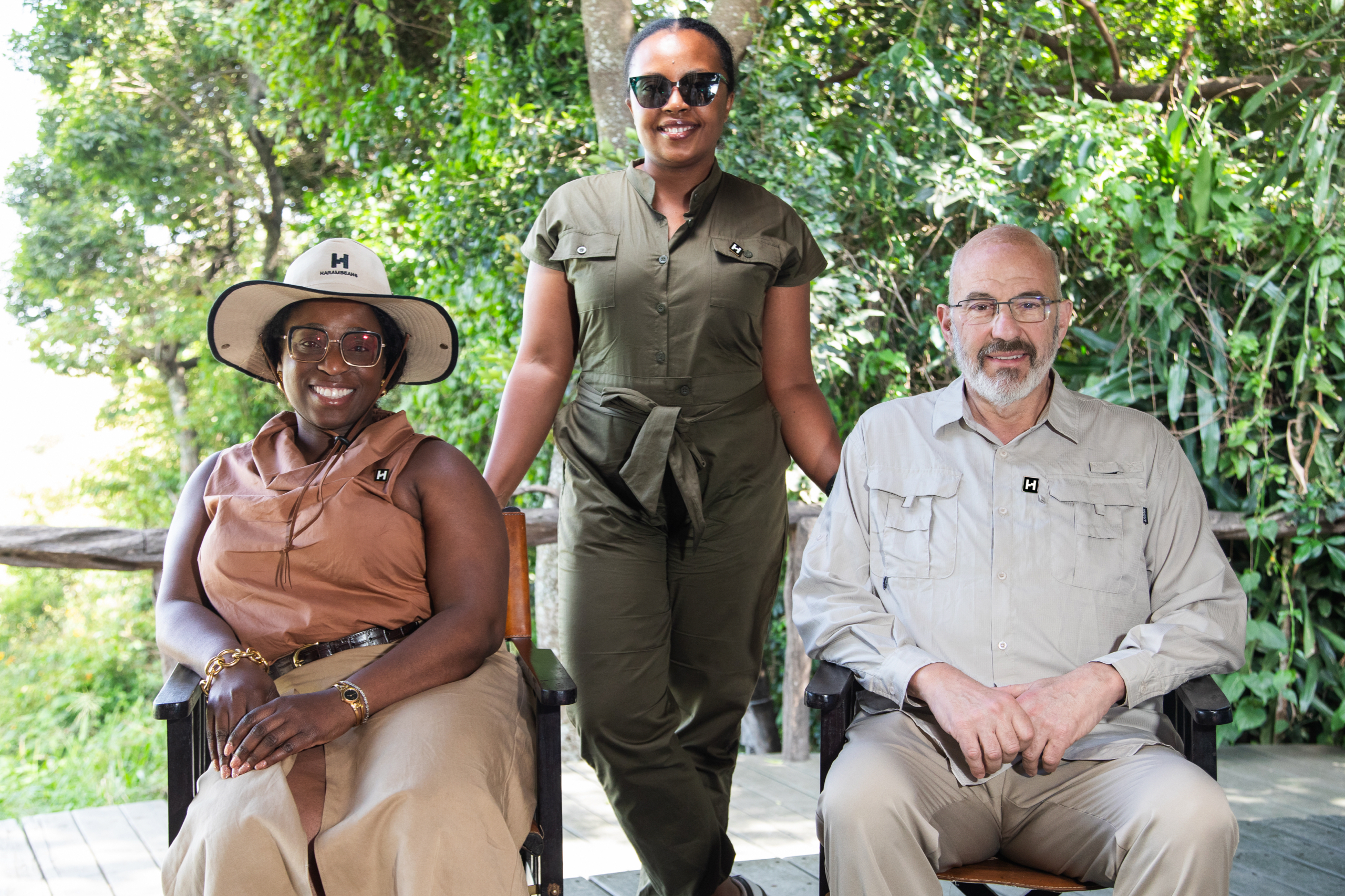MASAI MARA, Kenya — With its endless horizons and ancient storytelling traditions, the Masai Mara offered a fitting backdrop for a conversation about Africa’s next great global export: The Creative Industry. From film and fashion to music and media, the continent’s creative economy is on a meteoric rise and projected to reach $200 billion by 2030 and generate more than 20 million jobs. But alongside the promise lies a pressing question: How do we scale this sector with intention, sustainability, and impact?
This was the central theme of the “Creative Industries” Guild Session at the 2025 Harambeans Global Summit. Under the canopy of acacia trees, Harambeans and Guilds gathered to unpack how Africa can build an ecosystem that honors artistic expression while unlocking serious economic value.
The conversation featured Jeff Hoffman, the legendary American entrepreneur behind Priceline.com and Booking.com, who has also built Grammy-winning ventures in the music industry. He was joined by Akunna Cook, CEO of Next Narrative Africa and a former U.S. diplomat focused on African affairs, and Wakiuru Njuguna, Managing Partner of Kenya’s pioneering HEVA Fund. The session was moderated by Harambean Prince Ilboudo H’24, co-founder of Dokal.
JEFF HOFFMAN: TEARING DOWN THE WALL BETWEEN ART AND ENTERPRISE
It’s not often that a founder of multi-billion dollar tech platforms takes the stage to talk about the creative economy. But Jeff Hoffman has long defied conventional boundaries. A software engineer turned Grammy-winning music producer, Hoffman has built a career at the intersection of left brain logic and right brain imagination.
“When people talk about the creative economy, they put up a wall,” he said. “As though artists and businesspeople live on separate planets. But I’m here to tell you that wall is imaginary.”
From Priceline and Booking.com to ventures in the entertainment industry, Hoffman’s journey embodies what’s possible when business acumen meets creative courage. He described how his first foray into music, initially seen as an odd pivot for a tech entrepreneur, led to award-winning results, not in spite of, but because of his business background.
His message to African creatives and entrepreneurs alike was simple but radical: Start your ideas with ‘Wouldn’t it be cool if…?’ That spirit of curiosity, he argued, is the common DNA of both artists and successful founders.
AKUNNA COOK: REWRITING AFRICA’S GLOBAL NARRATIVE
For Akunna Cook, storytelling is more than entertainment, it’s strategy. As the CEO of Next Narrative Africa, she’s mobilizing the power of pop culture to shift how the world sees Africa and how Africa sees itself.
“Most of the global public will never visit Africa,” Cook said. “Their understanding comes from what they consume in media. And right now, we’re losing billions because of harmful stereotypes.”
Cook revealed that her team has secured $2.5 million in initial funding supported by the Gates and Hewlett Foundations to launch a content fund that supports African and diaspora creators. Their first production? A political drama following an Afrobeats star who runs for office.
But Cook’s mission extends beyond screens. She wants to build an entire creative economy infrastructure where artists can finance their ideas without relying on outdated gatekeepers. “We’re not waiting for Hollywood’s permission anymore,” she said.
WAKIURU NJUGUNA: CREATING FINANCIAL PATHWAYS FOR CREATORS

If storytelling is the soul of the creative economy, then Wakiuru Njuguna is helping build its financial backbone. As Managing Partner of HEVA Fund, Njuguna has spent over a decade designing investment models tailored for African creators.
“The irony is, banks love art; they hang it in their lobbies,” she quipped. “But less than 3% of impact investment actually goes to creative sectors.”
HEVA is working to change that. Njuguna unveiled a $40 million fund in progress: $30 million in equity investments and $10 million in grant capital aimed at emerging African filmmakers and content creators. But beyond numbers, she stressed the need for “creative finance” approaches that understand the unique cycles of film, music, and fashion.
“You can invest in creativity and make money,” she emphasized. “But you need patience, nuance, and a willingness to learn how these industries actually work.”
A CREATIVE RENAISSANCE IN MOTION
From the heart of the Masai Mara, one truth emerged: Africa’s creative economy is not just rising, it’s redefining the rules. With bold storytellers, visionary investors, and tech-savvy innovators leading the charge, the continent is turning culture into capital.
The path forward is clear: build ecosystems that empower creators, fund ideas with intention, and tell stories that shift global narratives.
Africa’s creative future isn’t a promise, it’s already in progress.
